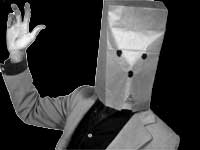Just In
- 1 hr ago

- 18 hrs ago

- 19 hrs ago

- 22 hrs ago

Don't Miss
- Sports
 Today's IPL 2024 Match Prediction, KKR vs PBKS: Who Will Win Kolkata Knight Riders vs Punjab Kings Match 42?
Today's IPL 2024 Match Prediction, KKR vs PBKS: Who Will Win Kolkata Knight Riders vs Punjab Kings Match 42? - News
 Lok Sabha Election 2024 Phase 2: PM Modi Urges To Vote As Voting Commences Across 13 States and UTs
Lok Sabha Election 2024 Phase 2: PM Modi Urges To Vote As Voting Commences Across 13 States and UTs - Movies
 Arti Singh-Dipak Chauhan Wedding | Krushna-Kashmera REACT To Govinda Attending Big Occasion: Humara Aisa…
Arti Singh-Dipak Chauhan Wedding | Krushna-Kashmera REACT To Govinda Attending Big Occasion: Humara Aisa… - Finance
 Stock Market Live Updates: Market Likely To Open Flat; Nifty To Hold 22,350; Earnings In Focus
Stock Market Live Updates: Market Likely To Open Flat; Nifty To Hold 22,350; Earnings In Focus - Education
 Cochin Shipyard, IIM Kozhikode Invites Applications For USHUS Program To Support Maritime Startups
Cochin Shipyard, IIM Kozhikode Invites Applications For USHUS Program To Support Maritime Startups - Automobiles
 Royal Enfield Unveils Revolutionary Rentals & Tours Service: Check Out All Details Here
Royal Enfield Unveils Revolutionary Rentals & Tours Service: Check Out All Details Here - Technology
 Elon Musk’s X Is Launching a TV App Similar to YouTube for Watching Videos
Elon Musk’s X Is Launching a TV App Similar to YouTube for Watching Videos - Travel
 Escape to Kalimpong, Gangtok, and Darjeeling with IRCTC's Tour Package; Check Itinerary
Escape to Kalimpong, Gangtok, and Darjeeling with IRCTC's Tour Package; Check Itinerary
Unmasking Our Identity (Contd)

The Vedanta Kesari, p. 326-329, September 2007
Whether or not a person is provided with an I-Card (identity card), everyone has his or her own unique identity. The process of creating our identity seems to begin with the issue of our birth-certificate which provides the names of our parents as also the date and place of our birth. Then comes our 'name', chosen with much care and interest by elders reflecting their vision of child's future personality. One's family and caste also play a role in the naming process. Later, when we join the school, right from the junior classes onwards, we are issued an I-Card, given a roll number and we begin to become possessive about our identity.
Nicknames that others give us also become part of our self-identification (about some of our buddies, all that we remember about them is their nick-name, and not the 'real' name!). With the passage of time, as we go on gathering our certificates of achievements in academic field or in sports or music or drama or any other extra-curricular activities, we reinforce our 'identity'. We generally take pride in it but at times also feel bad for either our bad performance in some field or for not acquiring some certificate which others have and we have missed.
Our identity is, thus, based on our nationality, language, hierarchy of caste and so on. The work we do and the experience we gain through it also add to our identity. If one is employed in a company, one also gets one's employee-number, his bank-account number, his insurance number and so on. A businessman may require another identity in the form of a license to carry out his business under a name. When we are admitted to a hospital or visit a doctor, there too we get a patient-number. When we buy a computer, we are given a customer-number and if we have an Internet account, we add another tag—our email id. There is no end to our identities.
The process of creating an identity for oneself does not end here. Our relationships with others also add to our sense of identity. First we have a 'child' identity, then we acquire a boy or a girl identity. Adulthood offers different sets of identities: a father or a mother, or a brother-in-law or maternal uncle or paternal aunt or a grandpa or a granny. There are also identities based on our relationship with our province or the town we live in (like Chinese, Assamese, Bengali and so on).
Our experiences in life also add to our identity. A person who goes on encountering failures in life, develops a 'loser' identity, while a person who goes on tasting success, gains a 'winner' identity. These experiences in turn generate inferiority or superiority complexes.
About the author
Swami Atmashraddananda
Swami
Atmashraddhananda
is
a
monk
of
the
Ramakrishna
Order
and
editor
of
The
Vedanta
Kesari
from
the
year
2004
.
-
 sri ramakrishnaEmotional Attachment-When Shed....
sri ramakrishnaEmotional Attachment-When Shed.... -
 sri ramakrishnaPleasures Of Life-Their Fleeting Nature
sri ramakrishnaPleasures Of Life-Their Fleeting Nature -
 swami vivekanandaAn Excerpt From Swami Tapasyananda's 'A Prayer To Swamiji'
swami vivekanandaAn Excerpt From Swami Tapasyananda's 'A Prayer To Swamiji' -
 swami vivekanandaSwami Vivekananda's Birth Anniversary: An Excerpt From The Book 'A Prayer To Swamiji'
swami vivekanandaSwami Vivekananda's Birth Anniversary: An Excerpt From The Book 'A Prayer To Swamiji' -
 ramana maharshiRamana Maharshi's Biography-Departure To Arunachala
ramana maharshiRamana Maharshi's Biography-Departure To Arunachala -
 sri ramakrishnaFreedom From Body
sri ramakrishnaFreedom From Body -
 sri ramakrishnaDegrees Of Freedom-Part II (Spiritual Freedom)
sri ramakrishnaDegrees Of Freedom-Part II (Spiritual Freedom) -
 sri ramakrishnaDegrees of Freedom
sri ramakrishnaDegrees of Freedom -
 sri ramakrishnaKabir-Part V
sri ramakrishnaKabir-Part V -
 sri ramakrishnaThe Eternal Message Of The Gita-The Seer And The Seen-V
sri ramakrishnaThe Eternal Message Of The Gita-The Seer And The Seen-V -
 sri ramakrishnaFear Of Old Age
sri ramakrishnaFear Of Old Age -
 sri ramakrishnaGratitude-III
sri ramakrishnaGratitude-III


 Click it and Unblock the Notifications
Click it and Unblock the Notifications



